#DietMyths
Text
0 notes
Text
Busting Nutrition Myths: The Truth About Burning Fat
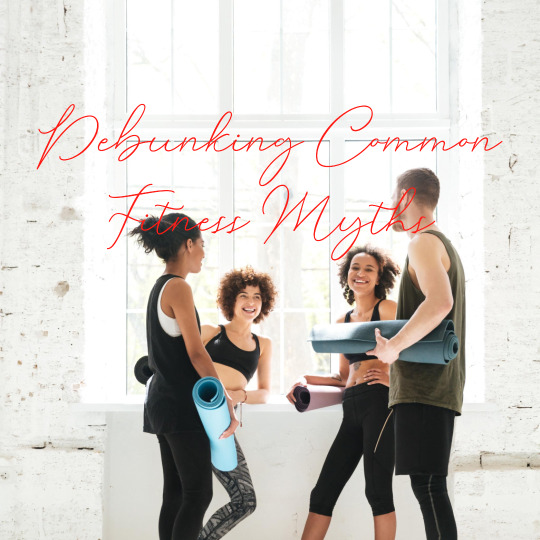
Busting Nutrition Myths: The Truth About Burning Fat
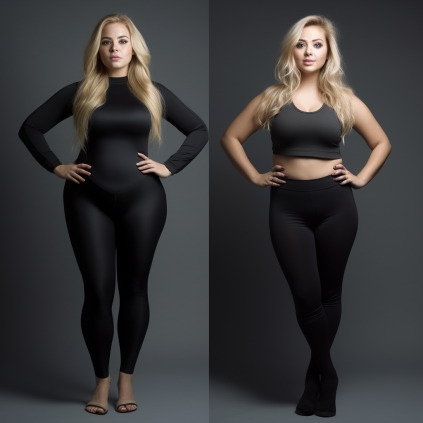
When it comes to fitness and nutrition, there are countless myths and misconceptions that can cloud our understanding of what truly works. In this article, we will debunk some of the most common nutrition myths and shed light on the truth about burning fat and building muscle. So let's separate fact from fiction and get to the bottom of these misconceptions!
Debunking Nutrition Myths
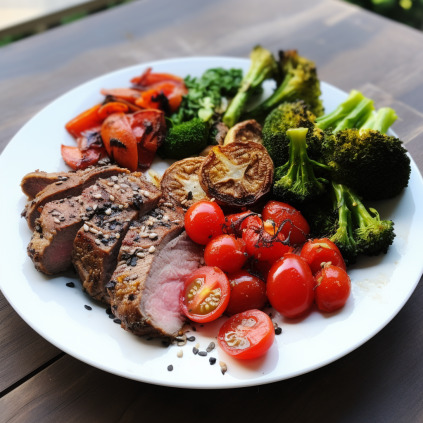
A myth, busted: Fat-to-muscle transformation
One of the most persistent myths surrounding fitness is the idea that you can transform fat into muscle. The truth is, fat and muscle are two separate types of tissue with completely different properties. Fat cells store energy, while muscle cells are responsible for movement and strength. So while you can lose fat and build muscle simultaneously, you can't directly convert one into the other.
How to Lose Fat and Gain Muscle

Good fat-burning exercises
When it comes to losing fat, incorporating effective exercises into your routine is crucial. High-intensity interval training (HIIT) workouts are particularly effective for burning calories and fat. Try exercises like mountain climbers, boat pose (Navasana), high knees, burpees, and bicycle crunches to get your heart rate up and torch those calories.
Exercises that build muscle
Strength training is essential for building muscle mass. Incorporate exercises like push-ups, squats, lunges, pull-ups, and bent-leg triceps dips into your workout routine to target different muscle groups. Remember, muscle weighs more than fat, so don't be discouraged if the scale doesn't budge right away. Focus on improving your strength and physique instead.
Foods that reduce fat and build muscle
While exercise plays a significant role in fat loss and muscle building, nutrition is equally important. Incorporating nutrient-dense foods into your diet can support these goals. Focus on consuming lean proteins like chicken, fish, and tofu, along with plenty of fruits, vegetables, whole grains, and healthy fats like avocados and nuts. Avoid processed foods and excessive sugar, as they can hinder your progress.
Can You Gain Muscle and Lose Fat at the Same Time?

The First Law of Thermodynamics
According to the first law of thermodynamics, energy cannot be created or destroyed; it can only be converted from one form to another. This principle applies to the body as well. To lose fat, you need to create an energy deficit by consuming fewer calories than you burn. To build muscle, you need to provide your body with enough energy and nutrients to support muscle growth. So while it is possible to work on both goals simultaneously, it requires careful attention to nutrition and exercise.
Outside the textbook
While the first law of thermodynamics provides a foundation for understanding the relationship between energy intake and expenditure, real-world results can sometimes defy these principles. Research has shown that certain factors like genetics, hormone levels, and individual body composition can influence how our bodies respond to diet and exercise. So while the science provides a starting point, it's essential to listen to your body and adapt your approach accordingly.
The Top 5 Biggest Nutrition Myths

1. I need to eat less to see the results I want.
Contrary to popular belief, drastically cutting calories can actually hinder your progress. The body needs a certain amount of energy to function properly, including fuel for workouts. Instead of focusing on eating less, prioritize eating nutrient-dense foods that support your goals.
2. Low carbs is the way to go.
While low-carb diets can lead to initial weight loss due to water loss, they may not be sustainable or suitable for everyone. Carbohydrates provide energy for exercise and play a vital role in recovery. Focus on choosing complex carbohydrates like whole grains, fruits, and vegetables, while limiting processed and refined carbs.
3. I’m only losing weight if the scale tells me I am.
The number on the scale is not the only indicator of progress. Muscle weighs more than fat, so as you build muscle and lose fat, your weight may stay the same or even increase. Instead, pay attention to how your clothes fit, your body measurements, and how you feel overall.
4. I can either enjoy a great body or a great life. Not both.
Achieving a fit and healthy physique doesn't mean sacrificing your social life or enjoyment of food. It's all about finding a balanced approach that incorporates regular exercise, nutritious meals, and allowing yourself to enjoy occasional indulgences. Flexibility and moderation are key.
5. Nutrition coaching is expensive.
While professional nutrition coaching can be beneficial for some, it is not necessary for everyone. There is a wealth of information available online and through reputable sources that can help you make informed decisions about your nutrition. Experimenting with different approaches and finding what works for you can be a more affordable and empowering option.
So, what do we recommend?
When it comes to nutrition, it's important to stay informed and be open to adapting your approach based on your individual needs and goals. Don't fall victim to common myths and misconceptions. Listen to your body, fuel it with nutrient-dense foods, and find a balance between exercise, rest, and enjoying life. Remember, everyone's journey is unique, and the key is finding what works best for you.
Practice Smart Fitness: 25 Debunked Training And Diet Myths
Myth 1: If You're Heavy, You're Fat
Weight alone does not tell the full story of your body composition. Factors like muscle mass, bone density, and water retention can all contribute to a higher weight. Focus on overall health and body composition, rather than simply the number on the scale.
Myth 2: You Can't Build Muscle With Veggies
While protein is essential for muscle growth, it is not limited to animal sources. Plant-based sources like legumes, tofu, tempeh, and quinoa can also provide ample protein for muscle repair and growth.
Myth 3: You Have To Eat Fruit To Be Healthy
While fruits offer many health benefits, they are not the only path to good health. Vegetables, whole grains, lean proteins, and healthy fats are also crucial for a well-rounded and nutritious diet.
Myth 4: Women Tone, Men Build
This myth perpetuates gender stereotypes and ignores the fact that muscle growth is possible for both men and women. Strength training is beneficial for everyone, regardless of gender, as it helps to increase lean muscle mass and improve overall body composition.
Myth 5: If You Take A Long Break, Your Muscle Will Turn To Fat
Muscle and fat are two distinct types of tissue with different properties. When you stop exercising, your muscle mass may decrease due to inactivity, but it does not magically turn into fat. However, a sedentary lifestyle and poor diet can lead to fat gain.
Myth 6: Salt Is Bad For You
While excessive salt intake can contribute to health issues like high blood pressure, salt is essential for the body's proper functioning. Moderation is key when it comes to sodium intake, and it's important to choose natural sources of salt, like sea salt, rather than highly processed options.
Myth 7: You Can't Be Ripped All Year
While maintaining a shredded physique year-round may be challenging, it is not impossible for everyone. However, it's important to find a balance between strict dieting and allowing yourself some flexibility and enjoyment in your eating habits.
Myth 8: Carbs Are Bad
Carbohydrates are a crucial source of energy for the body, especially during exercise. The key is to choose complex carbohydrates like whole grains, fruits, and vegetables, while limiting refined and processed carbs.
Myth 9: Weight Training Turns Women Into Men
This myth is based on the misconception that women will become overly muscular by lifting weights. In reality, women have lower levels of testosterone, which limits their ability to build large amounts of muscle mass. Strength training can actually help women achieve a toned and lean physique.
Myth 10: You Can Eat What You Want If You Train Hard And Take Fat Burners
No amount of exercise or fat burners can compensate for a poor diet. Nutrition plays a significant role in achieving your fitness goals, and it's important to focus on consuming nutrient-dense foods that support your overall health and body composition.
Myth 11: If you want to lose fat, avoid fat
Dietary fat is not the enemy when it comes to weight loss. Healthy fats, like those found in avocados, nuts, and olive oil, are essential for various bodily functions. Instead of avoiding fat entirely, focus on incorporating healthy fats into your diet in moderation.
Myth 12: Lots of calories make you fat
While consuming excessive calories can contribute to weight gain, it's important to consider the source of those calories. Nutrient-dense foods, even if they are higher in calories, can support a healthy body composition and provide essential nutrients.
Myth 13: Cheat meals are the same as re-feeds
Cheat meals involve indulging in high-calorie foods and can often lead to overeating. On the other hand, re-feed days are strategic high-carb, moderate-calorie days that can benefit metabolism and hormone levels. It's essential to understand the difference and approach them mindfully.
Myth 14: Natural/organic/gluten-free foods are best for weight loss
While natural, organic, and gluten-free foods can offer some health benefits, they are not inherently better for weight loss. Calorie balance and overall dietary quality are more important factors to consider when aiming for fat loss or improved body composition.
Myth 15: Carbonated drinks suck calcium out of your bones
While excessive consumption of sugary carbonated drinks can lead to health issues, there is no direct link between carbonation and calcium depletion in bones. However, it's essential to consume sugary drinks in moderation and prioritize water as the main source of hydration.
Myth 16: If you're a woman, don't work your upper body more than once per week. You'll look like a man
This myth perpetuates gender stereotypes and disregards the fact that women can benefit from upper body strength training just like men. A well-rounded strength training program should include exercises that target all major muscle groups, including the upper body.
Myth 17: If you want to lose weight, do cardio until you drop the weight you want. Start lifting only after you've lost the weight
Combining cardiovascular exercise with strength training is a more effective approach for weight loss and overall fitness. Cardiovascular exercise burns calories during the activity, while strength training helps to increase lean muscle mass, which boosts metabolism and promotes fat loss even at rest.
Myth 18: You Need to Work Out Every Day to See Results
It's not necessary to exercise every single day to see results. Overtraining without adequate rest can lead to burnout, injuries, and reduced progress. Rest days are crucial for recovery and muscle growth. A well-structured workout plan includes rest days to allow your body to recover and adapt.
Myth 19: You Can Spot-Reduce Fat
Targeted fat loss, also known as spot reduction, is a persistent myth. You can't selectively lose fat from a specific area of your body by focusing on exercises for that area. Fat loss is a systemic process, and it occurs gradually throughout your body as you create a calorie deficit through diet and exercise.
Myth 20: You Must Always Follow a Specific Diet Plan for Results
One-size-fits-all diet plans don't work for everyone. What's more important is creating a sustainable, balanced, and personalized diet that suits your preferences and lifestyle. It's about making healthier choices consistently rather than adhering to a rigid plan.
Myth 21: You Should Avoid All Sugar
While it's wise to limit added sugars in your diet, not all sugar is bad. Natural sugars found in fruits and some dairy products come with fiber, vitamins, and minerals that make them healthier options. Moderation is key when it comes to sugar intake.
Myth 22: Supplements Are a Shortcut to Fitness Success
Supplements can be useful to fill nutritional gaps, but they are not magic pills for fitness success. Whole foods should be the foundation of your diet, and supplements should complement your diet when necessary. They can't replace a balanced diet and consistent exercise.
Myth 23: The Scale Is the Only Measure of Progress
Relying solely on the number on the scale can be misleading. Factors like muscle gain, water retention, and hormonal fluctuations can affect your weight. Other indicators of progress, such as how your clothes fit, body measurements, and how you feel, are also important.
Myth 24: You Can Out-Exercise a Bad Diet
No amount of exercise can compensate for a consistently poor diet. While exercise burns calories and offers numerous health benefits, nutrition plays a more significant role in weight management and overall health. A balanced diet should complement your exercise routine.
Myth 25: You Must Eat Every 2-3 Hours to Boost Metabolism
The idea of eating frequent small meals to boost metabolism is a common misconception. Meal frequency does not significantly impact metabolism for most people. What's more important is overall calorie intake and macronutrient balance over the course of the day. Some people may prefer smaller, frequent meals, while others do well with fewer, larger meals; it's a matter of personal preference.



Embrace Your Cycle, Elevate Your Workouts! 🚴♀️🌙 Syncing your fitness routine with your menstrual phases can lead to amazing results. 💪💫 #CycleSyncing #OptimizedWorkouts"
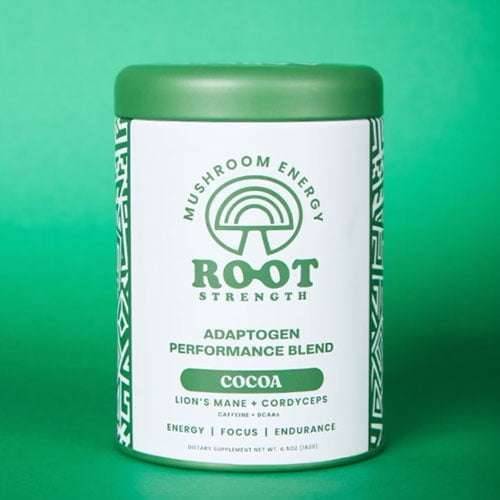
Read the full article
#SmartFitness#DebunkedMyths#DietMyths#ExerciseTips#FitnessEducation#FitnessIcons#FitnessMyths#HealthierLifestyle#JourneytoHealth#MythDebunking
0 notes
Link
🍪 Can eating Oreos really help you lose weight? The Oreo Diet has been a hot topic in the health and fitness world, but is it fact or fiction? Let's take a closer look at the science behind this controversial diet. 🍪 The Oreo Diet claims that you can eat Oreos as a meal replacement and still lose weight. The idea is to limit your daily calorie intake by replacing one or two meals with Oreos. But is this a sustainable and healthy way to lose weight? 🍪 While Oreos are low in calories, they are high in sugar and processed ingredients. This can lead to spikes in blood sugar and cravings, making it difficult to stick to the diet long-term. Additionally, replacing meals with a processed snack like Oreos may not provide your body with the nutrients it needs to function properly.1. The Oreo Diet: An Overview of the Controversial Eating PlanThe Oreo Diet is a highly debated eating plan that involves consuming only Oreos for a set period. It gained popularity after a high school teacher lost weight on the diet. However, health experts warn against the potential risks of such a restrictive diet. Proponents claim that the diet is effective for weight loss due to the calorie restriction and the satisfaction from eating Oreos. But, the diet lacks essential nutrients and can lead to nutrient deficiencies. It also promotes unhealthy eating habits and can cause binge-eating after the diet ends. Before considering the Oreo Diet, it's crucial to consult a healthcare professional and consider a balanced diet with all essential nutrients. A balanced diet includes a variety of whole foods, lean proteins, healthy fats, and complex carbs. It's sustainable and promotes long-term health benefits. While the Oreo Diet may seem like a quick fix, it's not a healthy or sustainable option for weight loss. It's important to prioritize overall health and well-being over short-term weight loss goals. 🍪 Enjoy Oreos in moderation as part of a balanced diet. 2. The Science Behind the Oreo Diet: Separating Fact from FictionMany people believe that the Oreo Diet is a hoax, but science says otherwise. Here are the facts: Oreos are high in sugar and fat, but they also contain iron, calcium, and fiber. Studies show that eating Oreos in moderation can actually lead to weight loss. The key is to balance Oreos with healthy foods and exercise. Contrary to popular belief, Oreos are not the enemy. In fact, they can be a valuable part of a healthy diet. Research shows that Oreos can boost mood and cognitive function. They also contain antioxidants that can help prevent disease. However, it's important to choose the right type of Oreos - avoid double-stuffed or flavored varieties. But don't go overboard - too many Oreos can still be harmful to your health. Eating too many Oreos can lead to weight gain, diabetes, and other health problems. Stick to one or two Oreos per day, and balance them with fruits, vegetables, and lean protein. Remember, the Oreo Diet is not a magic solution - it's just one part of a healthy lifestyle. So go ahead, enjoy your Oreos - just do it in moderation and with a balanced diet and exercise routine. 🍪👍3. Can You Really Lose Weight on the Oreo Diet? Examining the EvidenceMany people are curious about the Oreo diet. Here's what we know: There is no scientific evidence that the Oreo diet can lead to sustained weight loss. While Oreos are low in fat, they are high in sugar and calories. Eating Oreos in moderation as part of a balanced diet may not be harmful, but it won't lead to significant weight loss. It's important to remember that weight loss is a complex process that involves a combination of diet, exercise, and lifestyle changes. Eating a diet high in processed foods, like Oreos, can lead to weight gain and other health problems. Instead, focus on eating a variety of whole foods, including fruits, vegetables, lean proteins, and healthy fats. Consult with a healthcare professional before starting any new diet or exercise program. In summary, while the Oreo diet may sound tempting, it's not a sustainable or healthy way to lose weight. Stick to a balanced diet and lifestyle changes for long-term success. 🍎🥦💪4. The Potential Risks and Benefits of the Oreo Diet for Your Health 🚫 Risks: High in sugar, fat, and calories May lead to weight gain and obesity Increased risk of diabetes and heart disease Lacks essential nutrients for a balanced diet 💪 Benefits: May help with weight loss due to calorie restriction Provides a source of energy and enjoyment May improve mood and reduce stress May increase creativity and productivity 🤔 Conclusion: The Oreo Diet may have some benefits, but the risks outweigh them. It's important to have a balanced diet and consult a healthcare professional before making any drastic changes to your diet.5. How to Incorporate Oreos into a Balanced Diet: Tips and TricksWhen it comes to incorporating Oreos into a balanced diet, it's all about moderation. Here are some tips to enjoy them guilt-free: Pair Oreos with protein-rich foods like Greek yogurt or a glass of milk to slow down digestion and keep you feeling full. Limit your serving size to 2-3 cookies and savor each bite mindfully. Try using crushed Oreos as a topping for oatmeal or yogurt bowls for added crunch and flavor. Opt for the classic Oreo flavor over the double-stuffed or flavored varieties to keep sugar and calorie intake in check. Consider making homemade Oreo-inspired treats with healthier ingredients like almond flour and natural sweeteners. Remember, Oreos can be enjoyed as part of a balanced diet when consumed in moderation and paired with nutritious foods.6. The Oreo Diet and Sustainability: Is It a Viable Long-Term Solution?The Oreo Diet has gained popularity as a sustainable way of eating. But is it really a viable long-term solution? 🍪 The Oreo Diet involves consuming only Oreos for all meals. 🌿 While it may seem sustainable, it lacks essential nutrients. 🧐 Experts warn against the Oreo Diet as a long-term solution. But what about sustainability? 🌎 The production of Oreos has a significant environmental impact. 🌿 A sustainable diet should prioritize whole, plant-based foods. 👉 Choosing locally sourced, organic options can also reduce your carbon footprint. So, while the Oreo Diet may be a fun experiment, it's not a sustainable or healthy long-term solution. 👍 Opt for a balanced diet rich in whole foods for optimal health and sustainability. 🌿 Consider reducing your meat consumption and choosing sustainable protein options. 🌎 Support local farmers and reduce food waste to further promote sustainability. 7. Expert Opinions on the Oreo Diet: What Nutritionists and Dietitians Have to Say Nutritionists and dietitians weigh in on the Oreo diet: Some say it's a fad diet with no scientific backing 🤔 Others argue that it's a fun way to incorporate treats into a balanced diet 🍪 Most agree that it's not sustainable long-term and lacks essential nutrients 🚫 Overall consensus: Enjoy Oreos in moderation as part of a balanced diet 🍎 Don't rely on them as a primary food source 🙅♀️ Consult a registered dietitian for personalized nutrition advice 📝 In conclusion, the Oreo Diet is not a sustainable or healthy way to lose weight. While it may lead to short-term weight loss, it lacks essential nutrients and can lead to long-term health problems. It is important to prioritize a balanced diet and regular exercise for overall health and wellness. 🍎🏋️♀️ Remember, there is no magic solution to weight loss. It takes dedication, consistency, and patience. Instead of relying on fad diets, focus on making small, sustainable changes to your lifestyle. Consult a registered dietitian for personalized nutrition advice. 🤝💪 In the end, the Oreo Diet is nothing more than a marketing ploy. Don't fall for the gimmick. Choose whole, nutrient-dense foods and enjoy treats in moderation. A healthy lifestyle is about balance, not restriction. 🙌🍪 https://fastdiet.net/the-oreo-diet-fact-or-fiction/?_unique_id=646ae633d0266
0 notes
Text
The Myths and Facts About Carb-Restrictive Diets
Carb-restrictive diets, such as the keto diet, have been gaining popularity in recent years as a way to lose weight quickly. However, there are many myths and misconceptions surrounding these types of diets that need to be addressed.
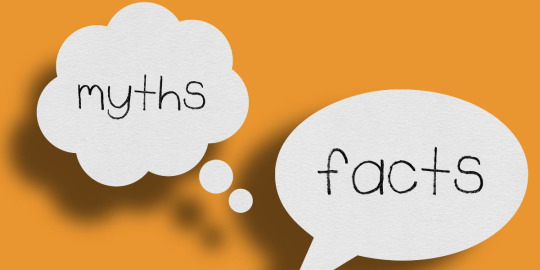
First, let's talk about the myth that all carbs are bad for you. This simply isn't true. Carbs are an important source of energy for the body and are found in a wide variety of foods, including fruits, vegetables, grains, and legumes. The key is to choose complex carbs, such as whole grains and fruits, over refined carbs, such as white bread and sugary snacks.
Another myth is that a low-carb diet will automatically lead to weight loss. While it's true that cutting out processed foods and refined carbs can help you lose weight, it's important to remember that weight loss is about creating a calorie deficit. So, even if you're eating a low-carb diet, if you're still consuming more calories than you're burning, you won't lose weight.
Another myth is that a low-carb diet is the only way to lose weight. In reality, there are many different ways to lose weight and what works for one person may not work for another. A well-rounded diet that includes a variety of nutrient-dense foods and regular physical activity is the best way to lose weight and maintain a healthy lifestyle.
It's also important to note that carb-restrictive diets can be difficult to stick to long-term and can lead to nutrient deficiencies. Cutting out entire food groups can make it hard to get all the nutrients your body needs to function properly.
In conclusion, while a low-carb diet may work for some people, it's not the only way to lose weight. It's important to find a diet that works for you, one that you can stick to long-term, and that provides all the nutrients your body needs. And, always consult with a doctor or a dietitian before starting any weight loss program.
0 notes
Text
Myth Vs facts
Don't believe everything you hear! It's time to separate #DietMyths from #DietFacts. Follow American CPR Care Association for more interesting content like this.

#heart#healthyfood#health#healthyfoodforheart#healthylifestyle#food#foodie#foodphotography#foodblogger#foodiegram#foodblog#foodporn#foodgasm#hearthealth#healthyfoods
0 notes
Text
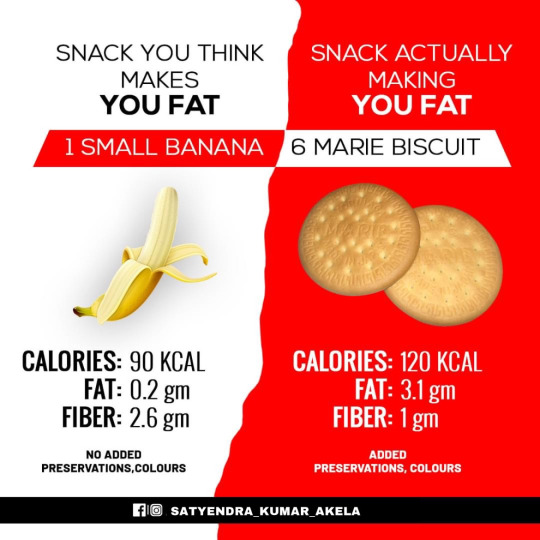
For a lot of us, morning/evening tea is often accompanied by marie cookies. A couple of cookies cannot hurt, isn't it?
DO YOU ALWAYS IGNORE BANANAS AND CHOSE SOMETHING LIKE A MARIE BISCUIT OVER THEM IF YOU ARE TRYING TO LOSE WEIGHT?
5-6 marie cookies can make your day bad!
We asked people how many cookies they have with tea - often 6 cookies with a cup in the morning and evening are considered harmless.
If we compare 6 marie Cookies with a small-sized Banana (80-100gm), Cookies are not just high in calories but also high in fat with low fibre content.
We agree that sugar thodi si zyada hai marie me, but all that is refined sugar which is dangerous as it leads to obesity, heart problems and what not! But banana has only naturally occuring fruit sugar.
DOES BANANA MAKE US FAT?
Well, the common myth is that banana is high in sugar and calories and thus it makes us FAT.
LET'S BREAK SOME MYTHS
1. Banana is NOT full of Sugar: 100 gm banana has about 12 gm of Sugar which is relatively less than modern processed foods. For instance, 100 g of marie biscuits have 26.7 g of sugar!
2. It is NOT high in Calories:
The calories in bananas are moderate enough to include in your diet without causing weight gain. A small banana contains 90 calories, and even an extra-large banana only has 135 calories.
3. It is NOT Full of Starch:
Bananas contain more starch than some other fruits, but that doesn't mean they'll make you fat. It's important to consider the type of starch, its calories and its overall impact on blood sugar. Bananas are one of the best sources of a type of starch called resistance Starch which, in your body, acts the same as soluble fibre. It passes through the small intestine without being digested, so it doesn't contribute the same calories as starch that's digested into sugar and used for energy.
4. It CAN be consumed by Diabetics patients also:
Although it's not a free food for Diabetics it is low in Glycemic index which means the Sugar present in the bananas is absorbed in the body slowly thus it doesn't spike the insulin in your body. It can be consumed by diabetics patients in moderate amounts.
#weightloss #weightlosssnacks #dietmyths #onlinedietitian
0 notes
Photo
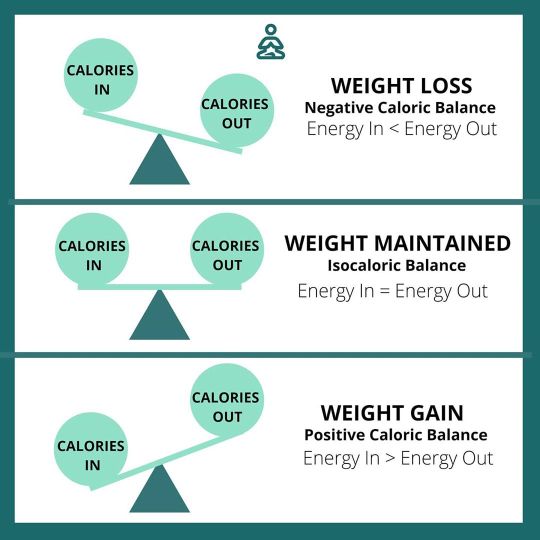
What is calorie balance? How does it help me reach my goals? - Follow👉 @chiselnutrition Follow👉 @rohitkunamalla - There are three different ways to view calorie intake: - Maintenance: calorie intake = calorie expenditure Results in a steady weight but still allows for some fat loss and muscle gain over time. - Deficit: calorie intake < calorie expenditure Results in weight loss. Whether that weight is fat or muscle is determined by your macronutrient distribution in addition to the quality of the calories you consume. - Surplus: calorie intake > calorie expenditure Results in weight gain. Whether that weight is fat or muscle is determined by your macronutrient distribution in addition to the quality of the calories you consume. - In terms of aesthetics and performance, aesthetics can have phases of surplus for muscle gain and deficit for fat loss, while performance tends to lean mostly on maintenance to ensure fitness is properly fueled but also surplus for muscle and strength gain. - Your calorie expenditure is a combination of your resting metabolic rate (i.e. the amount of calories your body naturally burns to simply survive aside from other activity - determined by body composition), exercise, and other daily activities. - There is a common misconception around the idea of “negative calorie” foods, which some believe contributes to their calorie expenditure. - Regardless of your goals and your calorie intake, change takes time. There is no easy option, no quick fix, no magic pill to obtain the results you seek. If you put in the work, your body will adapt to your choices. If your choices align with your goals, then you will reach them. - HARD WORK PAYS OFF. - #squats #chiselnutrition #musclefitness #mobility #physicaltherapy #mobilitywood #fitnessdiet #dietplans #dietmyths #fatloss #musclegain #surplus #quads #pullday #pushday #bodybuildinglifestyle #gains #flexibility #pulldaysquat #exercisetips #gymworkoutmotivation #workoutinstyle #mobilitywod #squat #gainmuscle #gainedweight #losefatgainmuscle #strength (at Hyderabad) https://www.instagram.com/p/CC0DiSuDlqp/?igshid=1htmyme1n3tsb
#squats#chiselnutrition#musclefitness#mobility#physicaltherapy#mobilitywood#fitnessdiet#dietplans#dietmyths#fatloss#musclegain#surplus#quads#pullday#pushday#bodybuildinglifestyle#gains#flexibility#pulldaysquat#exercisetips#gymworkoutmotivation#workoutinstyle#mobilitywod#squat#gainmuscle#gainedweight#losefatgainmuscle#strength
1 note
·
View note
Video
instagram
How can I stay up to date? It seems like the conventional wisdom on healthy diets changes all the time.🤷🏼♀️🤓 It doesn’t, and the definition of a healthy diet has been clear for some time. In fact, the basic theme of optimal eating — a diet made up mostly of whole, wholesome plant foods — has been clear to nutrition experts for generations. What does change all the time is the fads, fashions, marketing gimmicks, and hucksterism. How do you avoid the pitfalls of all that? Focus on foods, not nutrients. A diet may be higher or lower in total fat, or total carbohydrate, or total protein, and still be optimal. But a diet cannot be optimal if it is not made up mostly of some balanced combination of vegetables, fruits, whole grains, beans, legumes, nuts, seeds, and water. If you get the foods right, the nutrients sort themselves out. But if you focus on nutrients rather than foods, you quickly learn that there is more than one way to eat badly.#nutritionmyths #dietmyths #exposedandsolved . . #slickcoach #fitness #weightloss #weightlossjourney #weightlossmotivation #losingweight #liftingweights #diet #nutrition #nutritioncoach #workout #girlswithmuscle #girlswholift #motivation #inspiration #fitfam #fitspo #fitlife #fitnessmotivation #fitnessgirl #eathealthy #enjoyfood #enjoylife #foodie #diettips #weightlosstips #weightlifting #gym #bodybuilding (at Sutton, London) https://www.instagram.com/p/B3PmjRUgbUF/?igshid=l66q1wov57nl
#nutritionmyths#dietmyths#exposedandsolved#slickcoach#fitness#weightloss#weightlossjourney#weightlossmotivation#losingweight#liftingweights#diet#nutrition#nutritioncoach#workout#girlswithmuscle#girlswholift#motivation#inspiration#fitfam#fitspo#fitlife#fitnessmotivation#fitnessgirl#eathealthy#enjoyfood#enjoylife#foodie#diettips#weightlosstips#weightlifting
2 notes
·
View notes
Photo

3 MYTHS about nutrition that you should know... ➡️ MYTH 1: Carbs make you gain fat Gaining weight is very different to gaining fat .. it’s true that carbohydrates have a tendency to make you retain WATER WEIGHT .. but they do NOT make you gain fat (unless they’re consumed in excess like anything else) This is why people often see a fast (but temporary) reduction in weight when they first eliminate carbs .. but the problem with this is that it’s normally just a loss of FLUID TIP: Gaining fat doesn’t correlate to a singular macronutrient (like carbs) .. it only correlates to an excess of overall energy / calories ➡️ MYTH 2: Eating packaged foods that claim to have “reduced fat” are the healthiest options to choose Think of it like this .. when you take something away - you have to replace it with something else... Foods that have been modified to reduce the fat content are typically loaded with SUGAR instead (this is what makes them flavoursome) TIP: Reduce packaged foods if possible otherwise seek options that haven’t been overly modified ➡️ MYTH 3: Eating regularly is important otherwise your metabolism will slow down which can lead to weight gain Your body expends energy in order to break down and digest food .. but this process typically only accounts for around 10% of your overall energy expenditure (followed by exercise, movement and other bodily functions) Therefore eating more frequently does NOT create a substantial difference in your metabolism or your ability to burn calories TIP: Focus on regulating your daily energy intake without obsessing over meal times ➡️ Make sure you check out the Meal Plans “My contacting us”. if you’re looking for additional help with your nutrition (contact me from Bio) #gymfacts #facts #myth #fitnesstips #fitnessmyths #diet #dietmyths #gymtips #trainingtips #workoutinspiration #nutrition #nutritionknowledge #nutritionfacts #nutritionmyths #fitnesscoach #fitcoach #lifestylecoach #healthcoach #lifecoach #fitlife #fitlifestyle #instafit #instafacts #instagym #instapic #followforfollowback #likeandfollow #followandlike #followforfitness #truth https://www.instagram.com/p/CcGMc3Bskza/?igshid=NGJjMDIxMWI=
#gymfacts#facts#myth#fitnesstips#fitnessmyths#diet#dietmyths#gymtips#trainingtips#workoutinspiration#nutrition#nutritionknowledge#nutritionfacts#nutritionmyths#fitnesscoach#fitcoach#lifestylecoach#healthcoach#lifecoach#fitlife#fitlifestyle#instafit#instafacts#instagym#instapic#followforfollowback#likeandfollow#followandlike#followforfitness#truth
0 notes
Text
0 notes
Photo

🔥MIND THY CALORIES - RICE🔥 This is indeed a comparison that I feel is confusing a lot of folks and I’d like to break that down a little to try and make the confusion more understandable.
~~~~
🤖As you can see there is almost no difference in calorie count so let’s move onto the next big comment most people will make and that is fibre.
~~~~
🍀Fibre in Brown Rice Per 100g: 1.8g
🍀Fibre in White Rice Per 100g: .4g
Yes, there is less fibre in White Rice, however, when our total daily fibre intake should be somewhere between 20-40g per day, there is almost no difference in your choice to have white or brown rice when making your stir-fry tonight.
~~~ ~~~
If you have any questions just drop them below❤️☺️
~~~~~~~
Find more such content on
- www.zealforgood com
~~~~~~~~
#healthyrecipes #healthyfood #zerocalories #bicepsandtriceps #fitnessmyths #protiens #icecream #burncalories #healthy #dietfood #ketodiet #calories #foodmyths #healthyeating #caloriesincaloriesout #dietplan #healthyliving #protien #dietmyths #tofu #myths #dieting #lowcalories #protienpowder #protienpancakes #diet #nutritionmyths #protienshake #protienbar #basmatirice (at Google)
https://www.instagram.com/p/CCAbr7EHVuz/?igshid=1x8fbmp5ryu12
#healthyrecipes#healthyfood#zerocalories#bicepsandtriceps#fitnessmyths#protiens#icecream#burncalories#healthy#dietfood#ketodiet#calories#foodmyths#healthyeating#caloriesincaloriesout#dietplan#healthyliving#protien#dietmyths#tofu#myths#dieting#lowcalories#protienpowder#protienpancakes#diet#nutritionmyths#protienshake#protienbar#basmatirice
0 notes
Photo

Busting a few common myths about #keto with this well-balanced #lowcarb meal mad… Busting just a few widespread myths about #keto with this well-balanced #lowcarb meal made with baked salmon, lemon, arugula and ratatouille.
#about#balanced#bonapetit#busting#common#dietmyths#eater#fatadapted#healthyeating#Keto#ketoadapted#ketoapp#ketodiet#ketodietapp#KetoDietChallenge#ketofam#ketolicious#ketomyths#lchf#LowCarb#mad#meal#myths#paleo#salmon#wellbalanced
0 notes
Photo

New post on my blog!! … New post on my blog!! #keto #paleo #nutrition #realfood #diettips #dietmyths #dietplan #lowcarb #lchf #epilepsy #cancer #diabetes #metabolicsyndrome #obesity #lifestylenotdiet #calorieisnotacalorie #caloriesproper
#calorieisnotacalorie#caloriesproper#cancer#diabetes#dietmyths#dietplan#diettips#epilepsy#keto#lchf#lifestylenotdiet#lowcarb#metabolicsyndrome#nutrition#obesity#paleo#realfood
0 notes
Text
Weight loss Myths you shouldn’t believe

These days, people are more conscious about their health and weight. Most of the people try and do the little possible towards their healthier self. Moreover, almost everyone, at some point in time, browses on the internet about weight loss. The content being much searched, people write a lot about it. This gives rise to weight loss myths.
Thanks to all the bad advice, a lot of myths have developed around diet and weight loss. Most of these myths are either of no use or sometimes even harmful for the person. It thus becomes important to be aware of all these weight loss myths and eradicate them from your life!
Do not eat after 6 PM
So this one is the most spread of all the weight loss myths. Consider this, firstly these diet maestros tell you to not starve and then they mention eat before 6! What if you are going to sleep at 4 in the morning? What if you have night shifts? The fact behind this weight loss myth is that you should be done eating at least 3 hours before sleeping.
Eating Carbs will increase your weight
So many fad diets eliminate carbs from your diet. Of all the other weight loss myths, this one says that carbs will make you fat. Carbs are in reality rich in essential nutrients. Brown rice and fruits that are mentioned in diets, all of them have carbs but do they make you fat? The fact behind this myth is that you need to eat healthy carbs.
Skipping meals will help
Well, this one from weight loss myths is getting better these days. But still, many diets recommend skipping meals. I just came across this dietician the other day who suggests cold coffee in lunch and nothing else! Skipping meals will make you starve and eventually will break you to binge eating…
You need to combine diet with Gym
Diet coupled up with a session in Gym is a good combination but is not necessary. To clear these weight loss myths, the 80:20 rule stands true. Your weight loss journey is 80% about food and 20% exercise. So, even if you just go for 45 min. walk and follow a good diet, you are doing good.
http://www.thegossipmongers.com/weight-loss-myths/
0 notes
Text
Exercise & Diet: Myth Busting
The myth that women shouldn't lift heavy is only perpetuated by women who fear hard work & men who fear strong women. Now don't get offended it's just a myth lol😂
Today I’ll be talking about some common myths which are spreading worldwide and with enlighten you with some facts to state that these myths are just mere words and not the reality. So, stay with me to learn more. (Sources are from mdanderson, healthkart and select health)
We’ll be starting with some diet myths first which are as follows:
1. It’s hard to follow diet:
Eating fewer carbs & fats…

View On WordPress
#behealthy#didyouknow#dietmyth#diseasefree#exercise#exercisemyth#facts#happylife#health#healthiswealth#healthyeating#healthylifestyle#immunity#mythbusted#mythbusters#mythdebunking#myths#naturally#nutritionxhealth#vegan
1 note
·
View note
Link
So, make a note of these diet myths and facts to make the most of your pre-wedding weight loss without impacting your health!
0 notes